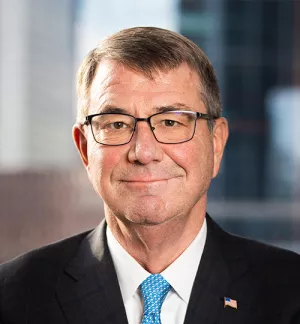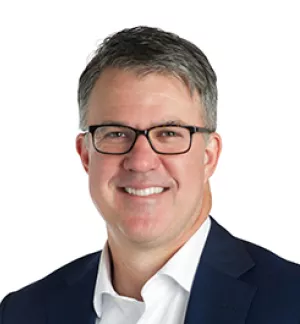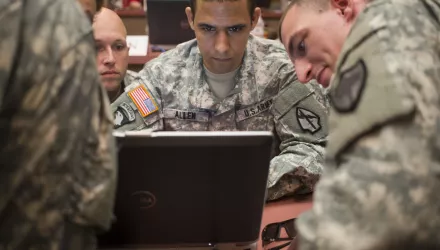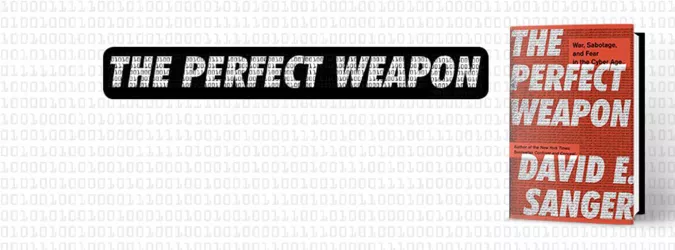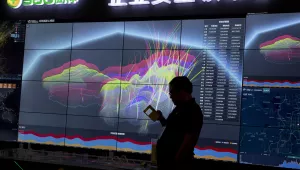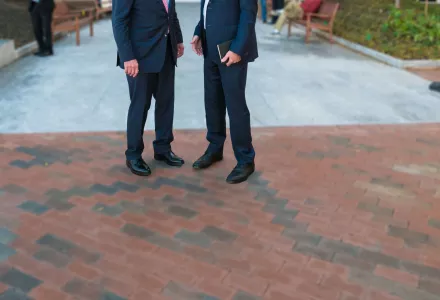
When Ash Carter became Secretary of Defense in 2015, he inherited the finest fighting force the world has ever known. Together with Chief of Staff Eric Rosenbach, they promptly set out to make it even better. By clarifying America’s strategic posture, diversifying talent, opening all positions to women, and thickening relations with Silicon Valley and other centers of innovation, Carter and Rosenbach left no stone unturned in their drive to optimize the U.S. military’s two critical ingredients: people and technology.
Their playbook is well-suited to guide a similar effort at the Belfer Center. As Director and Co-Director, Carter and Rosenbach have inherited from Graham Allison the world’s No. 1-ranked university think tank. They intend to build on that success by sustaining the Center’s core mission while widening its aperture; enhancing its unique ability to leverage science and technology to meet global challenges; and priming the next generation of leaders in both scholarship and policymaking.
“This is the house that Graham built,” Carter said. “It would be impossible to overstate his contributions to the Kennedy School and the Belfer Center, and to the cause of a safer world.”
Carter personifies the Center’s convergence of liberal arts and hard science. While he earned his doctorate in theoretical physics as a Rhodes Scholar at Oxford, he also studied medieval history at Yale. “Physics helps you understand how things work, and history helps you understand why things are the way they are,” he said. Carter’s new title—Belfer Professor of Technology and Global Affairs—reflects that intellectual coupling.
“From nuclear weapons to climate change, the Belfer Center has always distinguished itself by sounding the alarm about—and providing solutions for—some of the most consequential global security challenges of our time,” he said. “Now, to ensure the Center continues to help policymakers stay ahead of evolving threats, we will extend our distinctive approach to a fuller range of science and technology issues.”
Carter’s first report for the Center, A Lasting Defeat: The Campaign to Destroy ISIS, details his efforts to reorganize the Pentagon’s battle against ISIS, culminating in the destruction of ISIS strongholds in Mosul and Raqqa in recent months.
Going forward, Carter will continue to monitor global security, especially in North Korea, the Middle East, Russia, and China. But he will also draw on his extensive relationships with Silicon Valley, MIT, and start-ups around the world to identify ways to make the forces of innovation more inclusive, especially for workers whose jobs are threatened by disruptive technology. “There are thousands of engineers in Boston and Silicon Valley working on driverless cars today,” he noted. “But how many are working on carless drivers—that is, the careers of those whose livelihoods will go away? Cohesion of our society depends on solutions to both.”
Rosenbach, too, brings firsthand experience to his new role. After serving as Assistant Secretary of Defense, where he was the Pentagon’s “cyber czar,” he is acutely aware of how America’s adversaries are working to undermine confidence in our democratic way of life through cyberattacks and information operations. To better defend the integrity of U.S. elections and related critical infrastructure, Rosenbach has launched a bipartisan project called Defending Digital Democracy. Featuring the campaign managers from Mitt Romney’s and Hillary Clinton’s presidential campaigns, along with technology and IT executives from Facebook, Google, and leading cybersecurity firms, D3P aims to equip election and campaign officials across America with practical tools to keep bad actors at bay.
“Thousands of think tanks cover national security and foreign policy,” Rosenbach said. “But only the Belfer Center combines the insights of world-class scientists and technologists along with Harvard’s extraordinary convening power to cover global affairs with unmatched depth.”
In recent months, the Center has welcomed a number of researchers from foreign nations, along with a remarkable group of new scholars, practitioners, and senior fellows, including Heather Adkins, Laura Holgate, Caroline Kennedy, Lisa Monaco, Deborah Plunkett, Samantha Power, Susan Rice, Liz Sherwood-Randall, and Suzanne Spaulding.
After seven decades underwriting security and prosperity around the world, the U.S.-led international order is showing signs of age and decay. Doctrines and commitments once held as sacrosanct are now openly questioned. In this environment, geopolitics has returned as a prominent feature of global affairs. In particular, the Belfer Center is building intellectual arsenals to help U.S. policymakers better manage a rising China and an adversarial Russia. From the new website RussiaMatters.org to Graham Allison’s national bestseller, Destined for War: Can America and China Escape Thucydides’s Trap?, Center experts are working to give policymakers unvarnished assessments of these nations’ intentions and capabilities in order to shape a more peaceful future.
“Carter and Rosenbach Envision the Belfer Center's Future," Belfer Center Newsletter, Belfer Center for Science and International Affairs (Fall/Winter 2017-2018).



